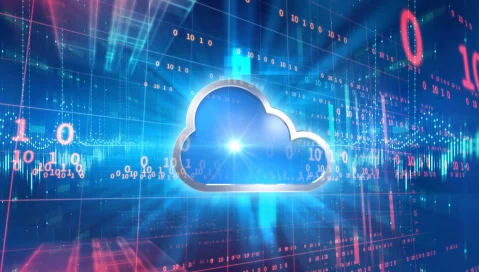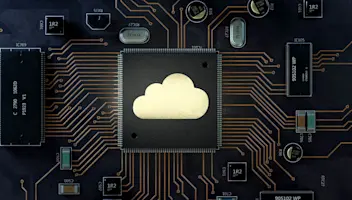En vedette dans cet article
The Hidden Dangers of Legacy On-Prem Food ERP Solutions and the Key Advantages of Modern Cloud-Based Systems
The Hidden Dangers of Legacy On-Prem Food ERP Solutions and the Key Advantages of Modern Cloud-Based Systems
10 Janv 2024
John McCurdy
The idea that a generic enterprise resource planning (ERP) system can deliver the same benefits as one built from the ground up to serve food and beverage businesses has been debunked. Our 2024 Food and Beverage Trends and Outlook report revealed that industry-specific ERP software helps increase annual revenue growth by an average of 1.9 percentage points more than horizontal solutions.
But are all ERPs designed for use in food and beverage equal? Is it enough that such software has purpose-built features for the complex processes and specialized tasks of the industry? Can you buy any given offering purported to have been developed for food and beverage and consider your organization future-proofed and fully equipped to deal with the demands of today’s market and economic climate?
Here again, it turns out that better results are possible by going a step further. Our report showed that companies that have migrated their ERP to the cloud are seeing an average of an additional 1.6 percentage points of annual revenue growth compared to those with on-prem solutions. But there’s much more than the bottom line to think about when comparing cloud and on-prem ERPs.
For example, legacy on-prem solutions—even those on the long-trusted Microsoft Dynamics NAV platform—carry with them hidden dangers to be aware of. Meanwhile, modern cloud-based systems delivered on the Software as a Service (SaaS) model—especially those with a Microsoft Business Central foundation—have key advantages worth investigating. Read on for the full scoop.
6 Key Advantages of Modern Cloud-Based Systems
Migrating your ERP to the cloud can be a serious competitive advantage. These are some major benefits:
Cost savings—Cloud solutions are hosted on the provider’s servers, so your business can be freed from the financial burden of installing and maintaining such hardware on-site. Better still, your IT professionals don’t have to spend time servicing it and can concentrate on other tasks.
Automatic updates—With a cloud-hosted food ERP, you don’t have to wonder if you’re using the latest version of your software with all the newest features. Your vendor can push updates automatically, and solutions on Business Central SaaS get updates directly from Microsoft, too.
Easy remote access—The option of logging in remotely on any device with a browser and internet connection is one of the hallmarks of cloud software. It’s particularly critical in the dynamic food and beverage industry, where being agile as an organization is crucial for success.
Enhanced cybersecurity—The majority of cloud food ERP systems include advanced cybersecurity functionality and provider-side threat monitoring to keep your company and data safe. Another perk of Business Central is Microsoft’s industry-leading security measures.
Data protection—Just as you can rest assured that your cybersecurity is taken care of by the provider with cloud-based solutions, the same is true for your data backups. Most have redundant servers in case of failure and can provide years’ worth of storage for peace of mind.
Fully scalability—Adding users and storage space is seamless with cloud ERP software, and you can scale down easily when necessary. A bonus of the Business Central environment is that you can also explore streamlined integrations with other cloud software.
Combining Cutting-Edge Functionality With Cloud Hosting for the Best Food ERP
Take all of the above into account, and it becomes apparent that ditching legacy on-prem food and beverage ERPs in favor of cloud-based solutions is a no-brainer for business continuity, organizational agility, full functionality and financial considerations. Furthermore, moving from unsupported software like Dynamics NAV to a modern platform like Business Central SaaS is the move to make.
If you’re looking for both powerful industry-specific technology and a modern cloud environment maintained by Microsoft, you’ll want to check out Aptean Food & Beverage ERP. With our system, you get unique features developed by our team based on collective decades of industry experience, plus the assuredness that the system’s infrastructure, security and flexibility are top-of-the-line.
What’s more, that’s not all we offer—we're a one-stop shop for all of your food and beverage business solution needs, including overall equipment effectiveness (OEE), enterprise asset management (EAM), product lifecycle management (PLM) and route optimization software. You can get your whole tech stack, optimized to work in sync, from a single trusted provider.
But you don’t have to take our word for it. Our recognition with the Customer Value Leadership Award in North American ERP Software for the Food and Beverage Industry from Frost & Sullivan speaks for itself and demonstrates both our commitment to our customers and our dedication to the market. We’re not just a provider, but a partner for the long term that’s always got your back.
Ready to learn more about Aptean Food & Beverage ERP and our flexible cloud deployment options? Check out our piece covering four compelling reasons to move your food and beverage ERP to the cloud, or reach out to us directly.
Related Content





Prêt à transformer votre entreprise ?
Nous avons les logiciels sectoriels spécialisés dont vous avez besoin pour développer votre entreprise.



